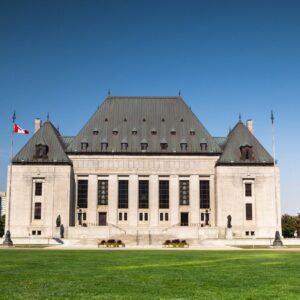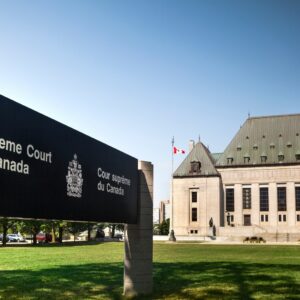Proposed Oil and Gas Regulation for Offshore Newfoundland Puts Ocean Ecosystems At Risk
A proposed federal regulation would set a dangerous precedent for offshore oil and gas development in a vast ocean area east of Newfoundland. The regulation’s area would cover 735,000 square kilometres of Atlantic Ocean—a surface area larger than the province of Alberta.
Proposed by Environment and Climate Change Minister Jonathan Wilkinson, the regulation in question would eliminate the requirement that new oil and gas explorations undergo a federal impact assessment. The regulation would also make it more difficult to establish marine protected areas where oil and gas development is prohibited.
Instead of requiring a thorough impact assessment, projects would only need to comply with generic conditions for environmental protection and wildlife conservation. This would put ecologically important areas at further risk.
Offshore oil and gas developments can have catastrophic impacts for workers and nature alike. One need only look to history: the tragic deaths of 87 crew members during the 1982 sinking of the Ocean Ranger offshore drilling unit off the coast of Newfoundland; the 2010 industrial disaster and oil spill involving the Deepwater Horizon drilling rig in the Gulf of Mexico.
Offshore Newfoundland is home to a number of species at risk, including a number of whale species, ivory gull, loggerhead and leatherhead sea turtles, various species of wolffish, white shark, American eel, and many more. The area is also critically important for deepwater corals and sponges that are sensitive to oil and gas development.
The impact of oil and gas development is not only felt below the water’s surface. Seabird and shorebird mortality due to oil spills is a major concern—especially given that 95 percent of Canadian seabirds are already in crisis. Oil spills in 2005 and 2018 alike have already demonstrated the impact these disasters can have on birds.
While the proposed regulation would include some provisions to mitigate harm to wildlife, additional provisions are needed to ensure oil and gas companies create and implement species at risk recovery strategies and action plans.
Canadian nature organizations take action
In response to the proposed regulation, Nature Canada is asking the federal government to make room for nature in offshore Newfoundland. That means expanding the legally protected areas in which oil and gas development is prohibited.
Nature Canada made a submission to the Impact Assessment Agency on April 30, 2020. In it, we recommend that the regulation be updated to explicitly state that it does not apply to marine protected areas now and in the future, nor to designated ecologically important sites such as marine refuges and bottom fishing closure areas. Our recommendation would mean that any development in these ecologically important spaces would first need to undergo a full federal impact assessment.
On May 11, 2020, three Canadian environmental groups took this issue to court, filing a judicial review application to quash the regional assessment report on which the proposed regulation is based. The Ecology Action Centre, Sierra Club Canada Foundation, and World Wildlife Fund Canada are requesting the Federal Court prohibit the environment minister from using the regional report as the basis of the regulation. They are represented by lawyers from Ecojustice.
Canada has made excellent progress in recent years in establishing marine protected areas, but much more needs to be done. On Earth Day 2020, Prime Minister Trudeau reaffirmed Canada’s commitment to achieve the critical goal of protecting 25 percent of Canada’s oceans by 2025. That must include offshore Newfoundland.
The province of Newfoundland and Labrador faces serious financial hardship ahead—but these challenges cannot be addressed through poorly considered oil and gas developments that could seriously damage the ecosystems of offshore Newfoundland.
Economic stimulus and recovery is a priority for the Canadian government, but it must ensure nature and the protection of ecosystems is put at the heart of these plans. Only then can we truly create a sustainable, equitable, and resilient economy for all Canadians.


